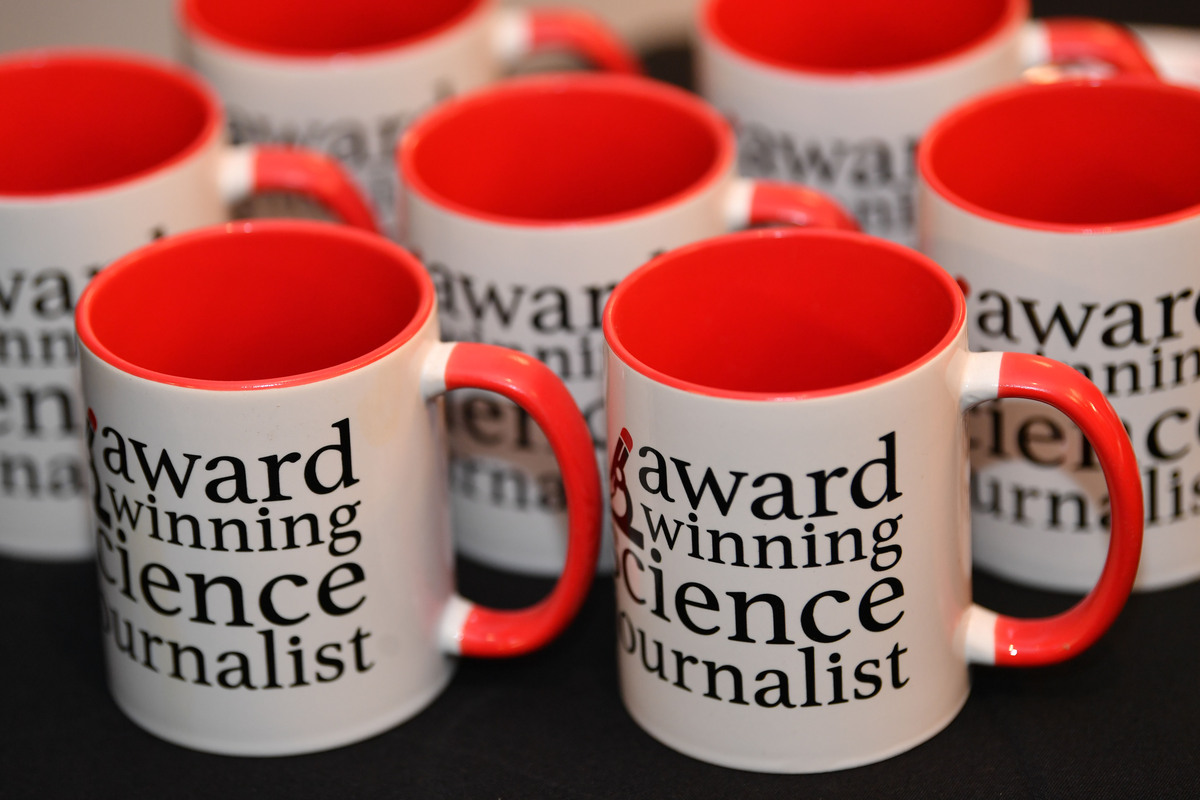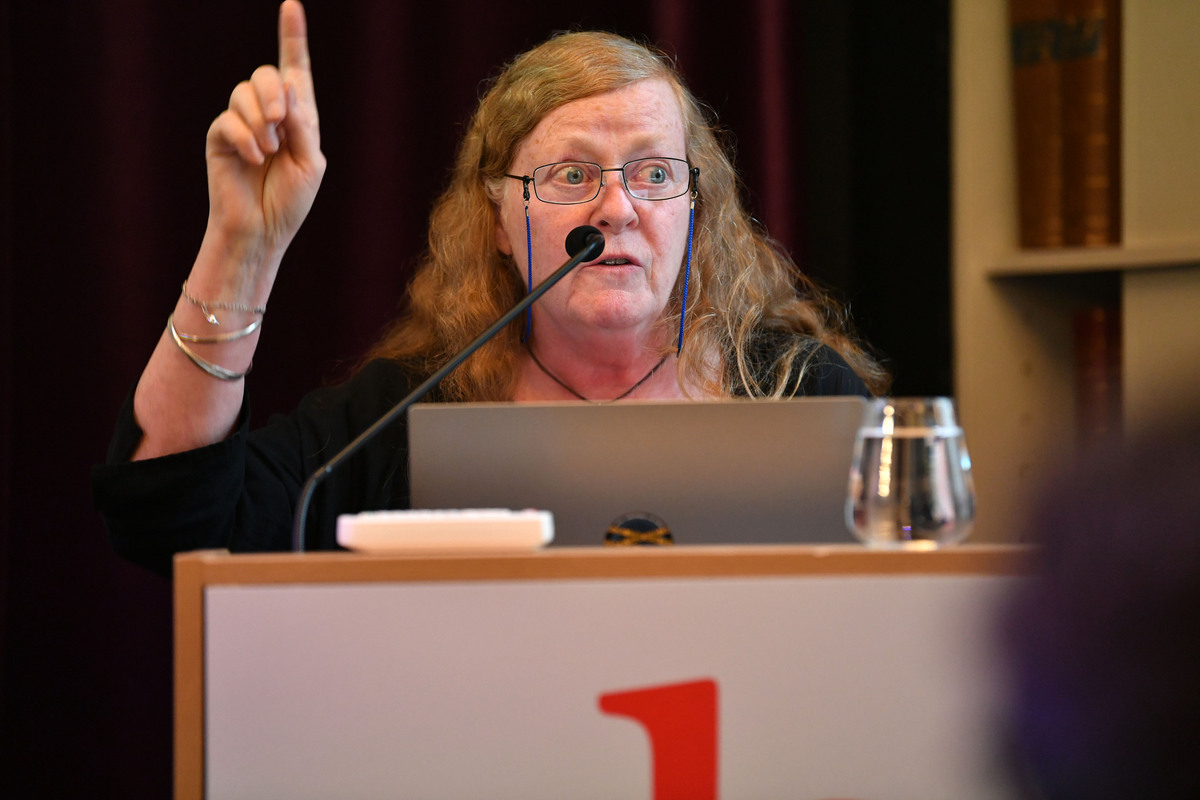
Categories Available for Entry
In 2025 the ABSW offered 11 Awards, for self-entry
All formats
- News Item of the Year
- News Analysis of the Year
- Steve Connor Award for Investigative Journalism
- Research Policy or Funding Story of the Year
- Newcomer of the Year - supported by the Association of the British Pharmaceutical Industry (ABPI)
Print/Online only
- Feature of the Year: general audience
- Feature of the Year: specialist audience
- Opinion Piece/Editorial of the Year
- The Dr Katharine Giles Award for best popular article written by a scientist, engineer or technologist - supported by the Dr Katharine Giles Fund
Format specific awards
- The Royal Society Audio Award - supported by The Royal Society
- Video of the Year
In 2025, the ABSW is offering one Award by nomination only: The Lifetime Achievement Award - our most prestigious award - is based on nominations from ABSW members. Find out more and nominate.
Note: ABSW used to nominate the 'British Science Journalist of the Year' for European Science Journalist of the Year, but now the association is encouraging members to enter individually (check how to do it here). ABSW will pay the fee.

Key Dates
09:00 January 1, 2025 (GMT) - Awards open to entry
23:59 January 31, 2025 (GMT) - Awards close to entry
May 2025 - finalists announced
18:30 Wednesday July 9, 2025 - winners announced at the annual awards ceremony at the Royal Institution, London - all finalists and ABSW members invited (watch out for booking details coming soon)
With thanks to our 2025 ABSW Award partners: The Association of the British Pharmaceutical Industry (ABPI), The Dr Katharine Giles Fund, The Royal Society and our media partner AlphaGalileo
Would you like to support excellence in science journalism by supporting an ABSW award in 2025? Find out more.
Cost of Entry
ABSW members and members of the Irish Science & Technology Journalists' Association (ISTJA) pay nothing to enter the awards as it is a benefit of membership. Non-members are required to pay a fee of £55 per category entered. There is no fee to enter the European Science Journalist of the Year as the fee is covered by the ABSW or to nominate an individual for the Lifetime Achievement Award.
Why not join the ABSW now to enter for free and receive all the membership benefits?

General Rules and Regulations
Work entered must have been published or broadcast on or between 01 January 2024 and 31 December 2024.
- The cover date on the issue in which an article appears will be considered the date of publication;
- The date/time of posting will be considered for online articles, podcasts or blogs;
- The date/time of the first broadcast will be considered for radio or television entries;
- For a series, the individual episode entered must fall within these dates.
Work entered must be accessible to the general public.
You can only enter once in each category (NB: for teams they must be ‘substantially different’ in order to enter more than once in a category).
You can enter more than one category (NB: for non-members you pay a fee for each category entered).
You cannot enter the same piece of work in different categories, apart from those entering categories where multiple pieces of work are allowed (Newcomer) as you can then enter these individual pieces in other categories.
Submissions must be substantially about science, technology, engineering or mathematics (STEM) or their impacts, rather than non-science pieces about health, medicine or the environment.
The Awards are for works published within the UK or Ireland and are intended for British and Irish-based journalists and writers, or those working for audiences in these two countries.
The Awards are for individual journalists and writers, or teams of up to four people, rather than for the organisation, institution, employer or publisher. All team members must be named in team submissions.
The judges reserve the right to reallocate an entry to a category different from the one in which it has been entered, as well as the right to withhold an award in any category. The decision of the judges in all matters will be final. The judges will not provide individual advice or feedback to entrants.
ABSW members cannot (i) submit to any category on behalf of non-member colleagues nor (ii) nominate colleagues – all entries must be submitted directly.
NB: Please also read category-specific guidance under the description of each category.

Category Guidance
Feature of the Year: general audience (£500)
Print/online only
For a feature published in print or online in any title that is primarily consumed by, and aimed at, a general, lay audience, whether broadsheet or tabloid in style. Examples include The Daily Mail, The Economist, New Scientist, Financial Times, Unearthed, BBC News. The feature may be part of a series or a standalone piece, but only one item in the series can be entered into the awards.
Feature of the Year: specialist audience (£500)
Print/online only
For a feature published in print or online in any title that targets specific, specialist audiences such as scientists, health professionals, chemists or engineers, whether trade press or other specialist publication. Examples include Nature, Carbon Brief, Chemistry World, Physics World, Computer Weekly. The feature may be part of a series or a standalone piece, but only one item in the series can be entered into the awards.
News Item of the Year (£500)
Any format
For a single news item published or broadcast in any medium. Examples include breaking news stories and first in-depth reports. The judges look for evidence that the story is new to a relevant audience, as well as excellent writing and original reporting.
News Analysis of the Year (£500)
Any format
For stories that provide an insightful explanation of the science behind the headlines and valuable new context and background to the news. The judges are looking for excellence and creativity in journalism.
Steve Connor Award for Investigative Journalism (£500) - in memory of Science Journalist Steve Connor
Any format
For an in-depth investigation into a topic of scientific interest, leading to a conclusion. Submissions should detail any lengthy or complicated evidence gathering, and any difficulties faced. The award can be for a single item or a series of items, although only one item in the series can be entered for judging.
Research Policy or Funding Story of the Year (£500)
Any format
For stories that tackle policy and funding agendas related to science and technology research.
Opinion Piece/Editorial of the Year (£500)
Individual submissions, print/online only
For written work that expresses an opinion or aims to change opinion. This includes opinion columns, editorials and blogs.
The Royal Society Audio Award (£500) - supported by The Royal Society
Audio only, eg: radio or podcast
For an audio programme or podcast where STEM is the primary issue covered. The award can be for a single programme or series, although only one item in the series can be entered.
Video of the year (£500)
Visual only
For a video where STEM is the primary issue covered. The award can be for a single video or series, although only one item in the series can be entered.
The Dr Katharine Giles Award for best popular article written by a scientist, engineer or technologist (£500) - supported by the Dr Katharine Giles Fund
Print/online only
This award is intended to encourage more academics to communicate with the public through the media and is therefore for those relatively new to producing content for a media outlet rather than academics with an established media career (ie: regular column, podcast or TV programme for example).
Newcomer of the Year (£500) - supported by the Association of the British Pharmaceutical Industry (ABPI)
Individual submissions, any format, three supporting pieces of work
For science writers who published their first ‘professional’ piece within the past three years (01 January 2022 – 31 December 2024). Entrants should be currently working in journalism, whether freelance or staff, full-time or part-time. The judges are looking for evidence of initiative and career progression, as well as quality journalism and depth of reporting.



